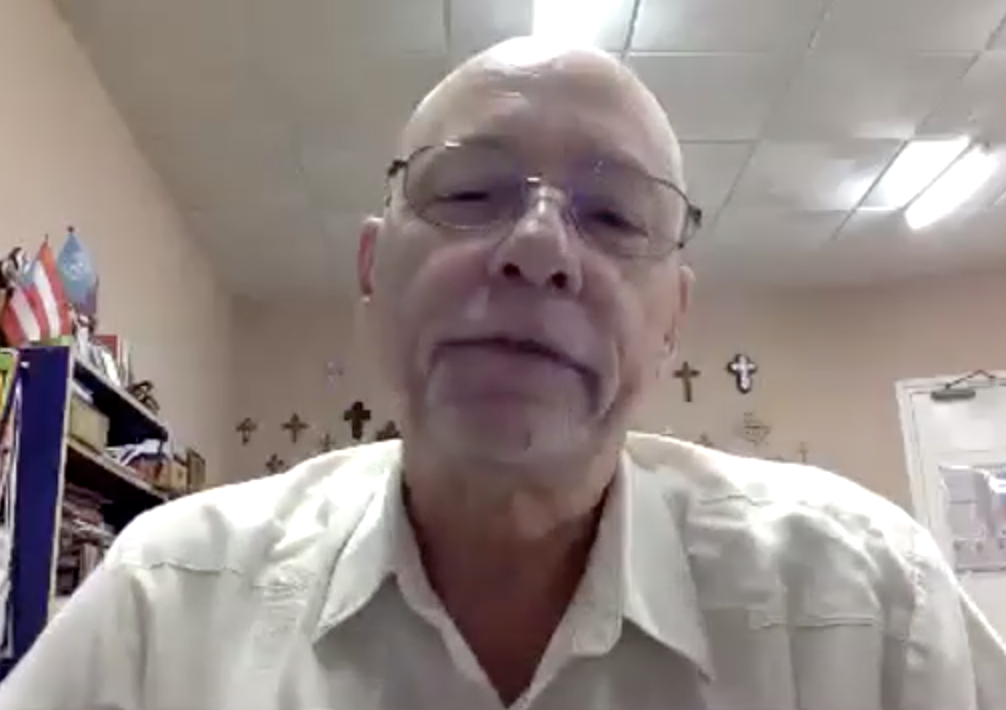
Christians around the world are facing something new with COVID-19. We need each other — for ideas, for encouragement, for hope. Our “Ministry During COVID-19” series are conversations with a diverse array of leaders, all over the globe, about how they’re coping and how God is showing up to unite and strengthen the church during this time.
To view this conversation, visit https://youtu.be/2X2vNBsCpYk
Rev. Dr. Carlos Emilio Ham is president of the Matanzas Evangelical Theological Seminary in Cuba and a pastor of the Presbyterian-Reformed Church in Cuba.
What is the ministry like in your context right now?
The Cuban authorities have been very strict with physical distancing and therefore we have not had much physical contacts during this ministry moment.
As a local pastor, I keep connected to people through prayers and phone calls. Our members are not connected to the internet and consequently do not use social media. I visit them in the distance, particularly the most vulnerable. We share literature that helps bring us hope: worship orders, biblical reflections, etc.
As the principal of our Evangelical Seminary of Theology, life has changed a lot, too. Our campus is closed now so we are taking this time to do repairs to the facilities. The professors and students continue to work academically through the internet, phone, and emails. And of course, we are most deeply connected through prayer.
What relationships or partnerships are being formed across denominations or faith groups?
We are the ecumenical theological seminary in Cuba, so on our campus we have families of various denominations and have celebrated worship during Holy Week and in intercession during this critical pandemic. Our relationships and partnerships are across denominational lines, and they are personal.
We are also an interreligious program (Higher Ecumenical Institute of Sciences of Religion) and have maintained the interaction between students and professors during this time.
What are the lessons you have learned about faith and your people that will outlast this pandemic?
I’ve learned to value more intentionally the importance of our physical contacts. We have a saying in Cuba that goes like this: “Nobody knows what s/he has until s/he loses it”. We are, therefore, very much looking forward to reconvening.
I’ve learned to use social media more responsibly to support all our work.
I’ve learned the relevance of human solidarity. My academic field is diaconia, and we have been during this pandemic various Diaconia communities, serving those more vulnerable and in need (particularly the elderly) serving food, medicine, transportation.
What has the COVID-19 pandemic revealed about global realities, particularly for the most vulnerable populations? How can we shape the post-pandemic future to look more like God’s kingdom for those people?
The U.S. embargo has impacted Cuba, especially during COVID-19 — it has had a great impact on us economically and socially, and we feel it is a great injustice to our people.
Even so, we have medical doctors in our country who are serving all over the world, and not just in Cuba. 30,000 doctors are in 30 different countries today, helping others. We have managed to address the medical needs of others — and this is a good example of an important value that is emerging during COVID-19: solidarity. We must support each other, instead of punishing each other for political reasons.
I’m hoping the outcome will be one of mutual support, so that we can proclaim and also live out the values of the Kingdom of God, which according to Romans 14:17, the Apostle Paul reminds us that the values of the kingdom have to do with justice, with peace, with joy in the Holy Spirit. We can rebuild our world in such a way that we can live out these values — justice, peace, joy in the Holy Spirit — in our relationships. I’m hoping that we can have more respect for our creation, as God calls us to be responsible stewards of creation. In these months of quarantine, we haven’t had plane flights, and all the greenhouse gas emissions, and we can see already how nature is recovering. This gives me hope that we might find a more “green,” ecological, economical, and political structure. More inclusive, less exclusive of people because of their color, or their politics, or their ethnicity. But maybe we can construct a new world in solidarity. And the values of the Forum are a good example of what we should be pursuing as our future. Seeking and working more toward what unites us instead of what divides us. Seeking and working more toward what unites us instead of what divides us.